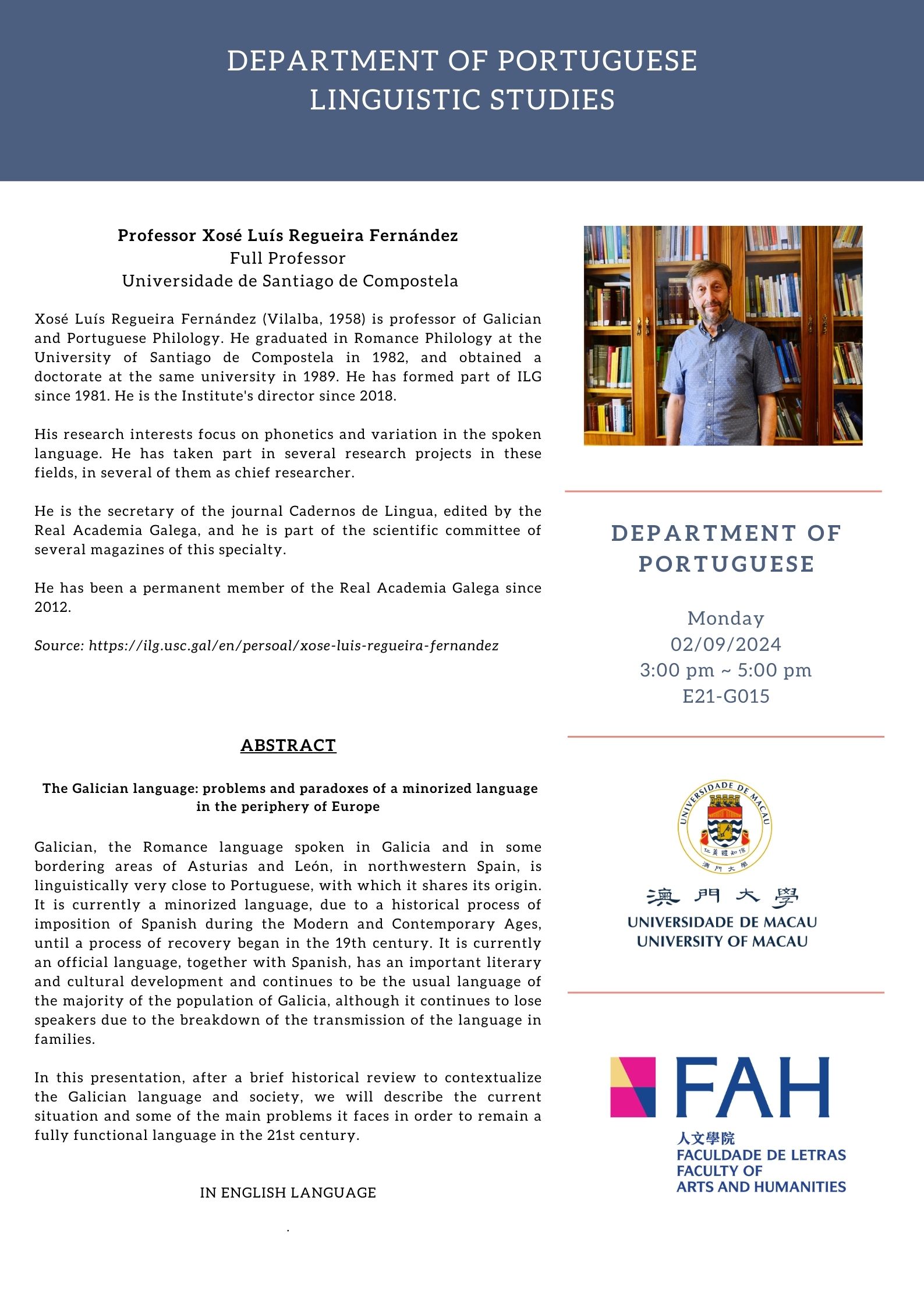

UM-FAH-DPORT: Seminar by Professor Xosé Luís Regueira Fernández on “The Galician language: problems and paradoxes of a minorized language in the periphery of Europe”
2024-09-02 @ 3:00 pm ~ 5:00 pm
Dear Professors and Students,
We are most pleased to invite all to attend the following Seminar by Professor Xosé Luís Regueira Fernández, Full Professor from Universidade de Santiago de Compostela on “The Galician language: problems and paradoxes of a minorized language in the periphery of Europe”, Monday, 02/09/2024, at 3:00pm in room E21b-G015.
BIO
Xosé Luís Regueira Fernández (Vilalba, 1958) is professor of Galician and Portuguese Philology. He graduated in Romance Philology at the University of Santiago de Compostela in 1982, and obtained a doctorate at the same university in 1989. He has formed part of ILG since 1981. He is the Institute’s director since 2018.
His research interests focus on phonetics and variation in the spoken language. He has taken part in several research projects in these fields, in several of them as chief researcher.
He is the secretary of the journal Cadernos de Lingua, edited by the Real Academia Galega, and he is part of the scientific committee of several magazines of this specialty.
He has been a permanent member of the Real Academia Galega since 2012.
Source: https://ilg.usc.gal/en/persoal/xose-luis-regueira-fernandez
ABSTRACT
The Galician language: problems and paradoxes of a minorized language in the periphery of Europe
Galician, the Romance language spoken in Galicia and in some bordering areas of Asturias and León, in northwestern Spain, is linguistically very close to Portuguese, with which it shares its origin. It is currently a minorized language, due to a historical process of imposition of Spanish during the Modern and Contemporary Ages, until a process of recovery began in the 19th century. It is currently an official language, together with Spanish, has an important literary and cultural development and continues to be the usual language of the majority of the population of Galicia, although it continues to lose speakers due to the breakdown of the transmission of the language in families.
In this presentation, after a brief historical review to contextualize the Galician language and society, we will describe the current situation and some of the main problems it faces in order to remain a fully functional language in the 21st century.
IN ENGLISH LANGUAGE

